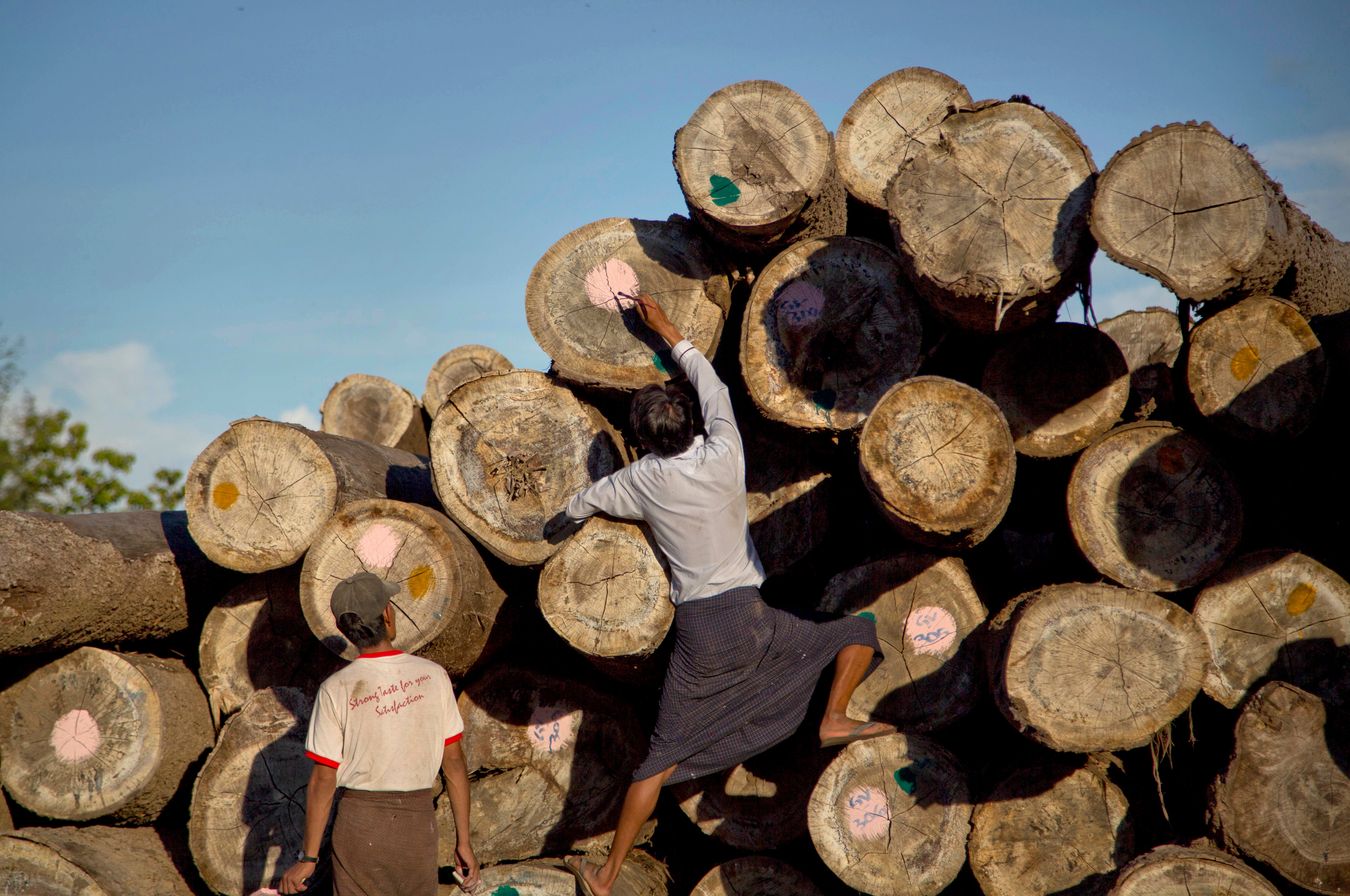Trade data: Myanmar teak exports helping fund military rule
A report based on U.S. trade data shows American companies are still importing teak from Myanmar despite sanctions imposed after the military seized power

Your support helps us to tell the story
From reproductive rights to climate change to Big Tech, The Independent is on the ground when the story is developing. Whether it's investigating the financials of Elon Musk's pro-Trump PAC or producing our latest documentary, 'The A Word', which shines a light on the American women fighting for reproductive rights, we know how important it is to parse out the facts from the messaging.
At such a critical moment in US history, we need reporters on the ground. Your donation allows us to keep sending journalists to speak to both sides of the story.
The Independent is trusted by Americans across the entire political spectrum. And unlike many other quality news outlets, we choose not to lock Americans out of our reporting and analysis with paywalls. We believe quality journalism should be available to everyone, paid for by those who can afford it.
Your support makes all the difference.American companies are still importing teak from Myanmar despite sanctions imposed after the military seized power last year, a report based on trade data said Tuesday.
Teak is one of the most valuable hardwoods, used in yachts, home flooring, doors, window frames and furniture. Myanmar is the biggest producer of the wood, even though its natural forests are dwindling.
American importers were still receiving shipments of teak from the Southeast Asian country as recently as December even though sanctions were put in place in April, data from the Panjiva global trade database show. Similar trends have been reported from Europe
The human rights group Justice for Myanmar compiled the data. It is urging the U.S. and other governments to crack down on the teak trade in line with sanctions against the country’s military leadership.
Those U.S. Treasury sanctions, announced April 21, 2021, ban dealings with Myanmar Timber Enterprise a state-owned company under the country's Ministry of Natural Resources and Environmental Conservation. It alone oversees exports of timber and sells to private companies through auctions.
The sanctions ban all transactions with the company or people connected with it by U.S. people and companies.
The European Union imposed similar sanctions in June.
Yet, sales and shipments of teak and other valuable hardwoods to the U.S. have continued. The timber arrived in 82 different shipments between Feb. 1 and Nov. 30, 2021, mainly teak boards and other wood items used in shipbuilding, outdoor decking, construction and furniture.
By buying through intermediaries, the importers are skirting the sanctions, the report contends.
“Considering that sanctions aim to block trade with MTE, and the timber exported from Myanmar is originally auctioned by MTE," the military still receives funds from the trade “no matter who officially exports the timber," the report said.
It urged the U.S. government to enforce the sanctions and to investigate possible breaches of the restrictions.
Myanmar's military, headed by Senior Gen. Min Aung Hlaing, deposed the elected government of Aung San Suu Kyi's National League for Democracy on Feb. 1, 2021. Suu Kyi was arrested and charged with about a dozen crimes. On Monday, the 76-year-old Nobel Peace Prize laureate was sentenced to four more years in prison, on top of the two year sentence she was ordered to serve from earlier cases.
Timber is one of resource-rich Myanmar's most valuable industries, bringing in millions of dollars a year in taxes and export revenues. One auction held in June of about 10,300 tons of illegally harvested timber that was confiscated by Suu Kyi's government brought in $5 million in revenue, local news reports said.
Myanmar's military sold that timber from a stockpile of about 200,000 tons of illegal timber, the reports said.
Myanmar began allowing private companies to set up teak and other timber plantations in 2006, ending a state monopoly on the industry. In 2014, the government banned exports of all raw timber, lifting the ban for timber from state-run and private plantations but keeping it in place for timber from natural forests.
Teak exports are subject to a special approval process.
But a sizable share of the teak shipped out of the country is smuggled across land borders. The data from Panjiva included only teak shipped directly from Myanmar, not other exports through intermediate destinations such as eastern Europe, Taiwan and Thailand.
The sanctions related to the coup overlay other restrictions on imports of teak meant to protect dwindling tropical forests, given that teak and some other species are in danger of becoming extinct in the wild.
The European Union has strict requirements for documenting the origins of each log or plank of lumber. Myanmar suppliers often have not provided such clear proof that the wood being exported has been legally harvested, environmental groups and reports by the EU have shown.